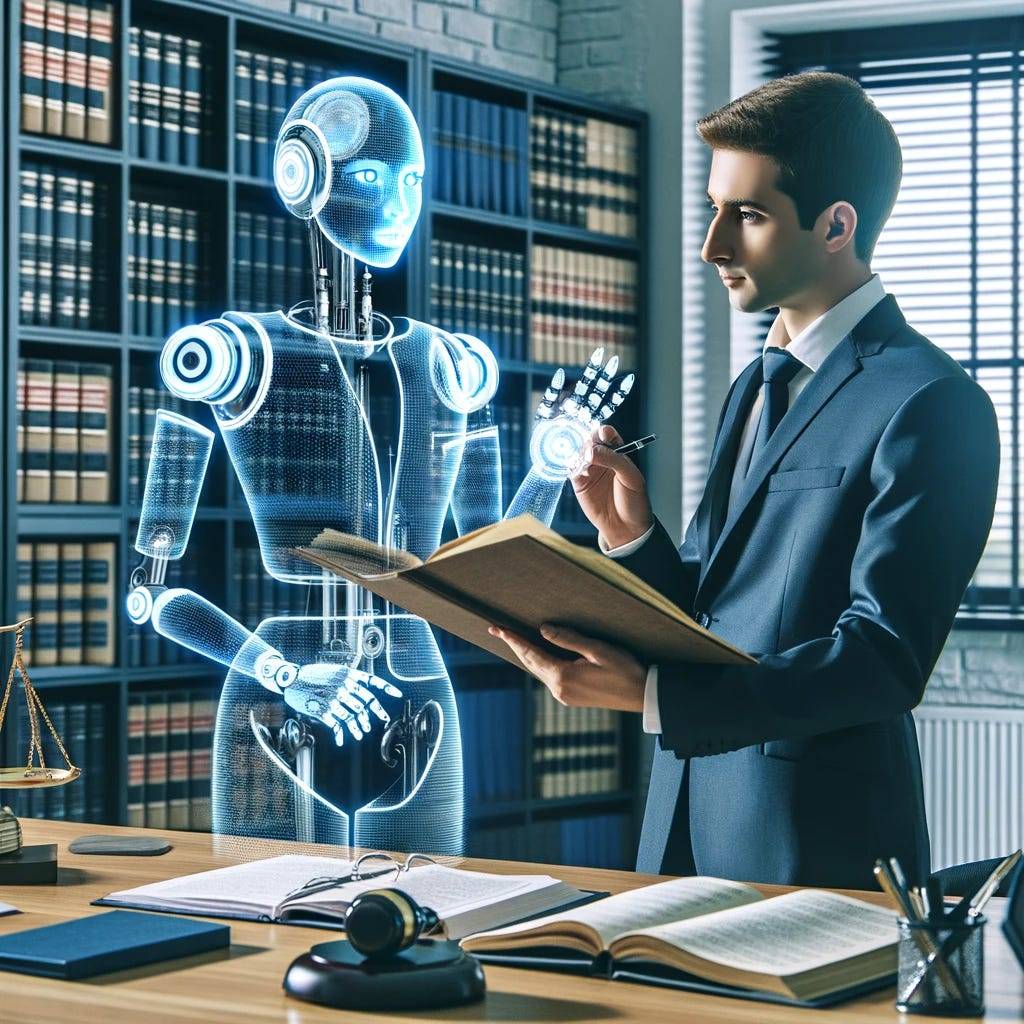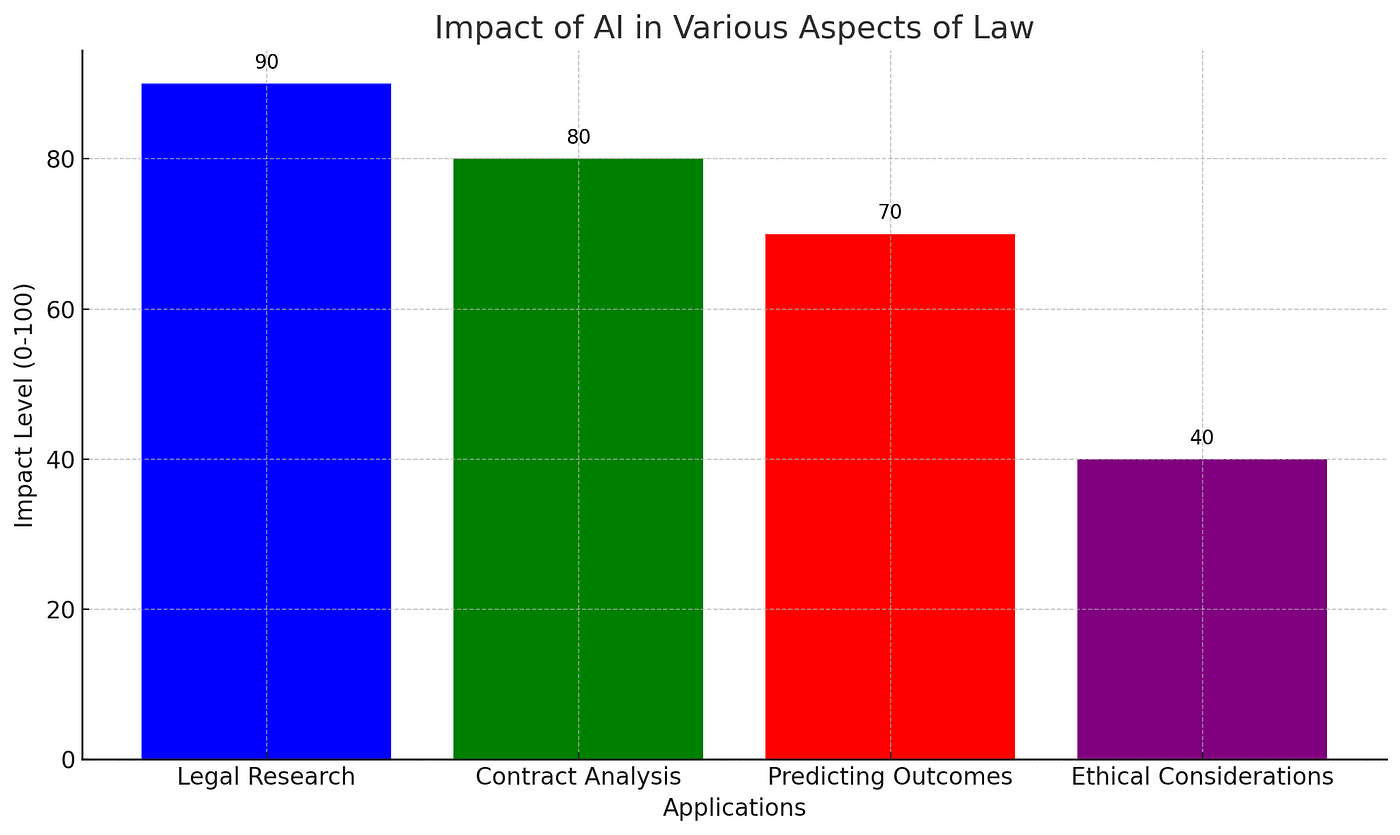
In a world where technology touches every aspect of our lives, it’s no surprise that it’s making waves in the legal field too. Imagine a world where artificial intelligence (AI) helps solve legal puzzles, making law more accessible and understandable. This isn’t a scene from a sci-fi movie; it’s happening right now.
AI in Law
The field of law is known for its complexity, with stacks of case files, legal precedents, and intricate laws. Enter AI, specifically Large Language Models (LLMs) like ChatGPT, which have started to play a significant role in reshaping this traditional domain. These AI models, trained on vast amounts of legal texts, can understand and generate human-like language, offering groundbreaking assistance in legal research, contract analysis, and even predicting court outcomes.
The impact of AI in law was thoroughly explored in a recent study. This comprehensive survey highlighted not just the advanced applications of AI in the legal sector, but also its potential in reshaping the judicial system. It delved into practical implementations of legal LLMs, such as aiding judges during trials and providing legal advice, and addressed the limitations concerning data, algorithms, and real-world legal practice. The study emphasized the transformative role of AI in law, underscoring the need for future innovations to tackle the challenges identified.
A Helping Hand in Legal Research
One of the most time-consuming tasks for lawyers is legal research. AI steps in as a powerful tool, enabling lawyers to sift through millions of legal documents in a fraction of the time it would take a human. This isn’t just about speed; it’s about enhancing accuracy and uncovering hidden connections in case law that a human researcher might miss.
Contract Analysis Made Easy
Contracts are the backbone of the business world, but reviewing them can be tedious and error-prone. AI transforms this by quickly analyzing contracts, highlighting potential issues, and even suggesting improvements. This doesn’t just save time; it reduces the risk of costly mistakes.
Predicting Court Outcomes
Imagine being able to predict how a court might rule on a case. AI is making this possible by analyzing past court decisions and identifying patterns. While it’s not foolproof, this can help lawyers strategize more effectively and manage client expectations.
The Human Touch in AI-Assisted Law
While AI offers incredible advantages, it doesn’t replace the need for human judgment. Legal decisions often involve ethical considerations, empathy, and a deep understanding of human context — areas where AI still lags behind. Therefore, the best approach combines AI’s efficiency with human insight.
Challenges in the AI-Legal Fusion
Integrating AI into law isn’t without its challenges. One major concern is data privacy and security, especially when handling sensitive legal information. There’s also the issue of bias — if the data AI learns from is biased, its outputs will be too. This is particularly concerning in legal settings, where fairness and impartiality are paramount.

To help understand the various ways AI is impacting the legal field, here’s a graph titled “Impact of AI in Various Aspects of Law.” It visually represents the level of impact (on a scale from 0 to 100) that AI has on different legal tasks like legal research, contract analysis, predicting court outcomes, and considering ethical aspects.
The Future of AI in Law
As AI continues to evolve, its potential in the legal field grows. In the future, we might see AI-assisted virtual courtrooms or AI mediators helping to resolve disputes. The possibilities are as vast as the technology itself.
A New Chapter in Legal History
AI is not just transforming the legal field; it’s revolutionizing it. By automating routine tasks, offering deep insights, and helping to predict outcomes, AI is freeing lawyers to focus on the more nuanced aspects of their work. This fusion of technology and law is not just about efficiency; it’s about making the legal system more accessible and equitable for everyone.
In this new era, the law is no longer just in the hands of lawyers and judges. It’s becoming a domain where technology, with its immense capabilities, joins hands with human expertise to create a more just and efficient legal system. For people looking at the future, this intersection of law and AI offers an exciting and promising field, full of opportunities to make a real difference in the world.
About Disruptive Concepts
Welcome to @Disruptive Concepts — your crystal ball into the future of technology. 🚀 Subscribe for new insight videos every Saturday!







